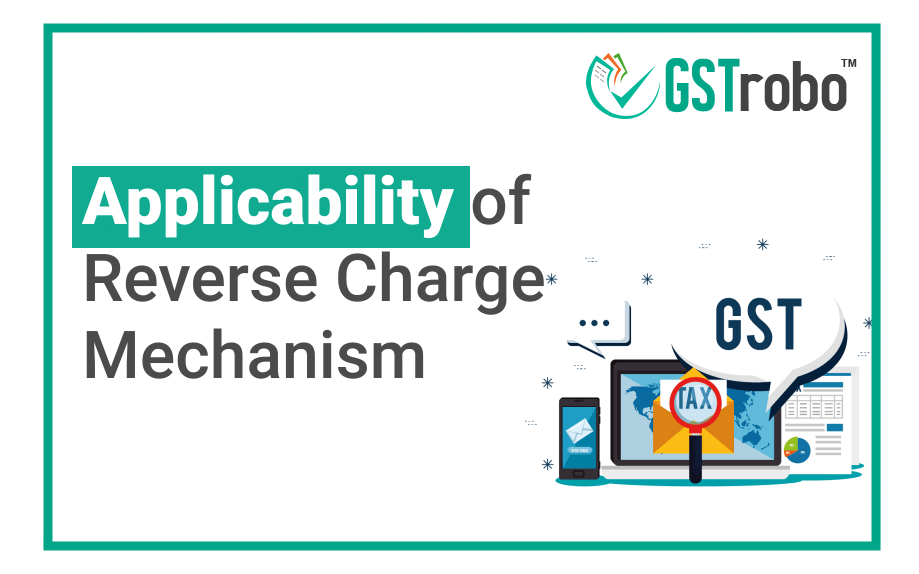Applicability of Reverse Charge Mechanism
In Reverse Charge Mechanism (RCM) under GST, the recipient who has purchased the goods or/and services is required to pay GST instead of the supplier.

Reverse Charge Mechanism (RCM) under GST?
Generally, the supplier who supplies goods or/and renders services is liable to pay tax under GST. However, under the reverse charge mechanism, the recipient who received goods or/and rendered services needs to pay the tax.
Applicability of Reverse Charge Mechanism (RCM)
Reverse Charge will apply in case of the following scenarios
- Goods Supplied or/and Services Rendered By an Unregistered Supplier to Registered Taxable Person
A reverse charge mechanism will apply to all those supplies when an unregistered supplier provides goods or/and services to a registered taxable person. In simple words, the recipient of such goods or/and services need to pay IGST on inter-state and CGST + SGST/UTGST on intra-state supply (when the value of supply exceeds INR 5000 in a day).
- E-Commerce Operator Services
All the services provided by the e-com operators come under the reverse charge mechanism (RCM). In other words, e-com operators will be liable to pay GST under RCM. Let us understand this with an example, if a service provider provides service through an e-commerce operator like JOBOY or Urban Company, then such e-com operator will collect and pay GST.
- Supply of Notified goods
Here is the list of goods that attracts GST under reverse charge mechanism (RCM):
- Cashew nuts (not shelled / peeled);
- Bidi wrapper leaves;
- Tobacco leaves;
- Lottery tickets;
- Silk or yarn
- Supply of Notified Services
If any supplier renders the following notified services, then in such case the recipient will be liable to pay GST under reverse charge mechanism (RCM).
- Goods Transport Agency (GTA) services rendered to any registered taxable person, partnership firm, body corporate, co-operative society, or casual taxable person;
- Advocate services rendered to any business entity located in the taxable territory;
- Arbitral tribunal services rendered to any business entity;
- Any Sponsorship services rendered to a body corporate or partnership firm.
- Central/State government or local authority services provided to a business entity (not including renting of immovable property, postal services, aircraft or vessel services, goods or passengers transport);
- Any service rendered by an insurance agent to any Insurance Business;
- Recovery agent services rendered to any banking/financial institution or NBFC;
- Transfer of copyright or permission given by the artist to use original literary, dramatic, musical, or artistic works to publisher, company, producer, or similar.
